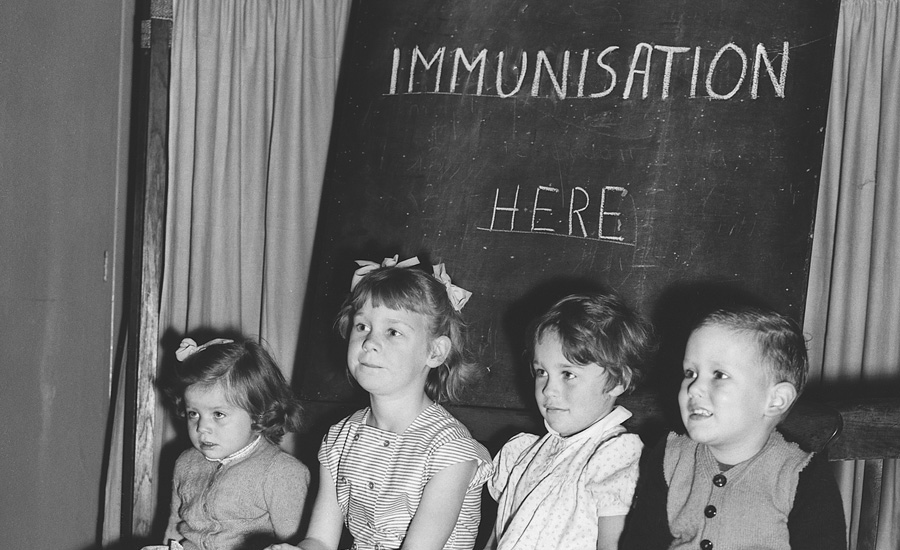What does it take to eradicate polio in the world’s most inaccessible places?
In the past, we beat polio in Britain with vaccination programmes in schools. Today, brave health volunteers are getting the vaccine to children in ways you’d never expect.
If you recall the immunisation drives of the 1950s and 60s, you probably remember the school assembly hall, queuing alongside your classmates, a nurse in starched linen, and swallowing the vaccine on a sugar-lump.
Today, the polio vaccination effort is very different. We’ve beaten the virus back to just a few of the world’s most hard-to-reach places, which brings a new set of challenges. In regions where it’s extremely difficult to set up conventional vaccination programmes, millions of courageous local health workers have taken up the challenge to deliver the vaccine to vulnerable children by foot. By bike. By boat. By helicopter. By donkey. By whatever means possible.
These volunteers are the unsung heroes and now, on the 60th anniversary of Jonas Salk’s polio vaccine being declared safe and effective, they’re on the verge of wiping out polio forever.
Because the virus can’t survive outside the human body for long it can, unlike most diseases, be eradicated. The vaccine costs as little as 9p per dose. So it’s now a race between the virus and the volunteers.
Volunteers travel for days to reach remote villages, braving hazardous terrain and unpredictable conditions. For example, in northern Nigeria, it takes a five-day camel trek to get vaccines to some communities. Even when faced with impossible conditions, they refuse to give up. In September 2014, polio workers across West and Central Africa immunized an astonishing 94 million children in just one week. And when flash-floods destroyed bridges and roads in the Indian state of Bihar, workers waded waist-deep to bring vaccines to at-risk areas.
The virus that caused panic when we were young — striking healthy children without warning—could soon be joining smallpox in the history books.
But polio, despite those memories of the 50s and 60s, hasn’t entirely gone away. It’s just that no-one is talking about it.
We need One Last Push to wipe it out once and for all.
That’s why silversurfers.com are backing this campaign to spread the word about these amazing volunteers. Visit onelastpush.org and throw your weight behind them by signing our polio promise.
Latest posts by Sally - Silversurfer's Editor (see all)
- Silversurfers Book Club Winter 2024/5 - November 26, 2024
- Top tips for preventing peanut butter from solidifying at the bottom of the jar - November 25, 2024
- Will you be sending Christmas cards this year? - November 23, 2024
- Do you like the new Jaguar rebrand? - November 21, 2024
- Christmas Decorations Masterclass: Make your own Festive Wreath, Garland and Flower Centrepieces - November 21, 2024





















